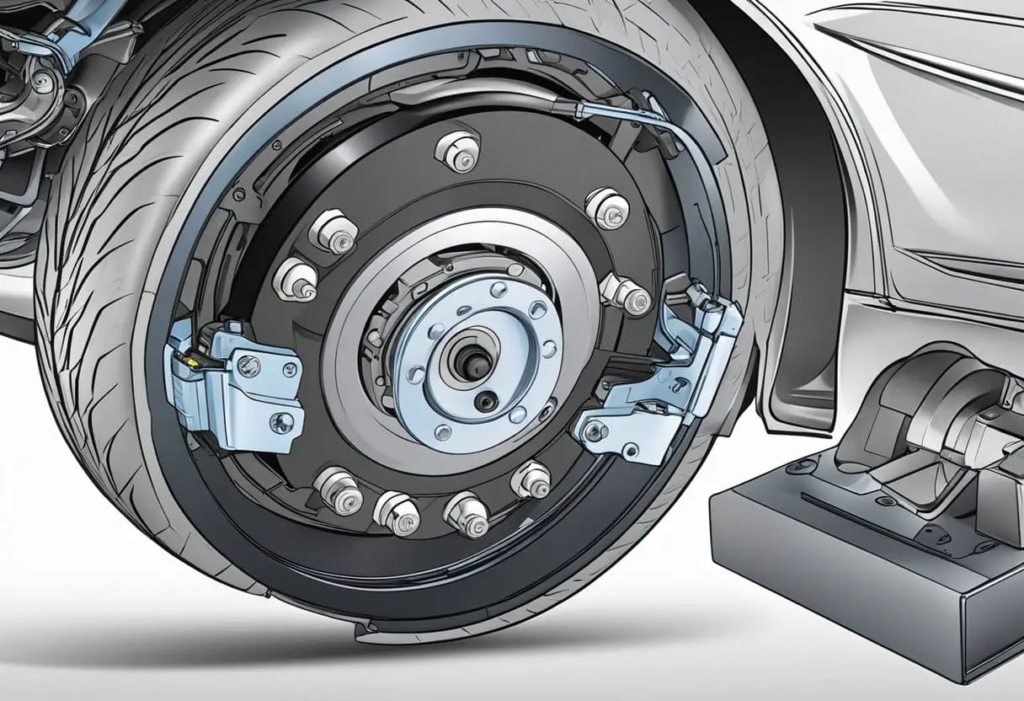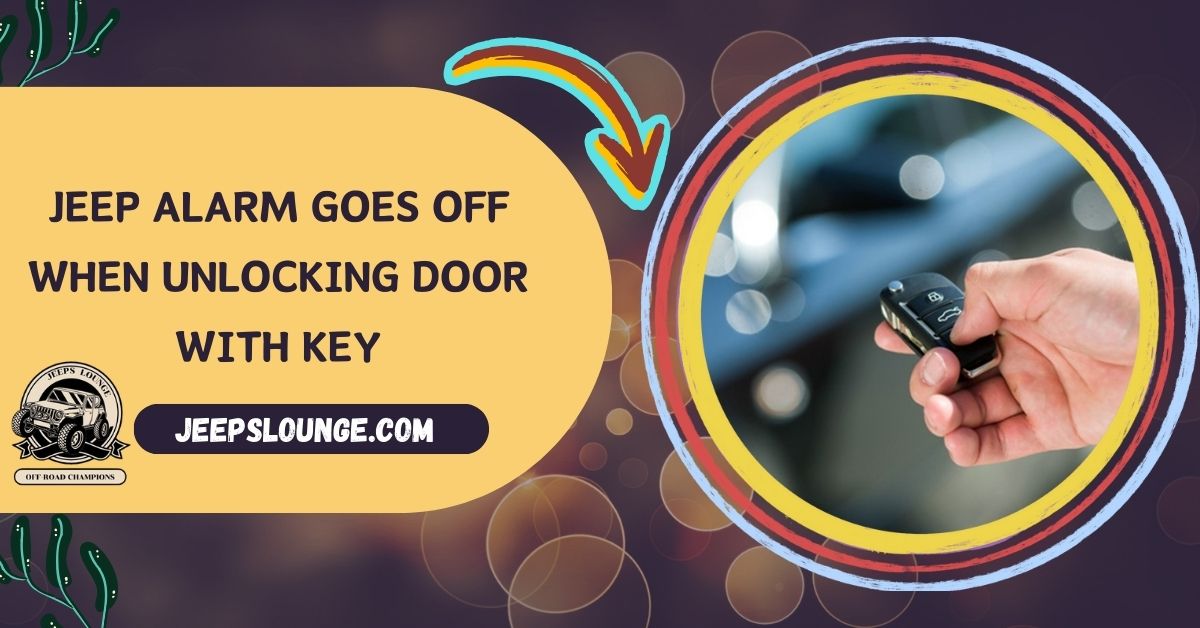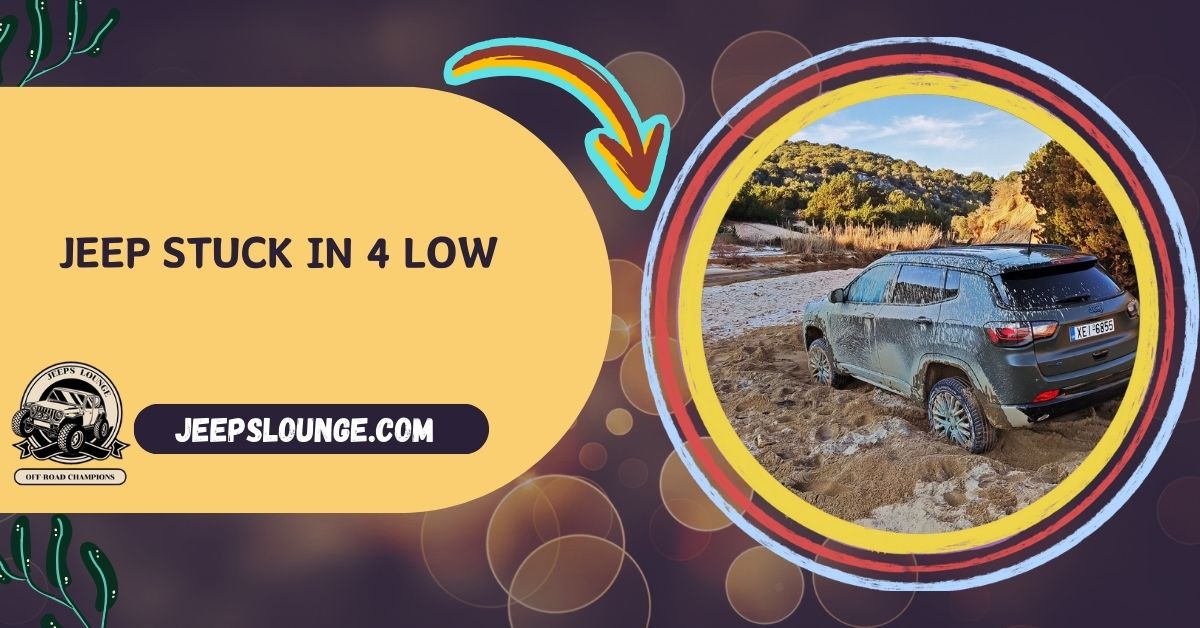The iconic rumble of a Jeep engine is a sound that stirs off-road dreams and adventurous spirits. But what happens when that familiar soundtrack is joined by an unwelcome chorus of squeaks, especially at slow speeds?
Regular maintenance, using high-quality parts, and promptly addressing minor issues go a long way in preventing squeaks and other problems. Listen closely to your Jeep and treat it with care!
Ignoring these chirps and groans can be tempting, but it’s a recipe for trouble. After all, your Jeep is meticulously engineered to operate smoothly and safely, and any unusual noises require attention. Here, we are exploring the solutions in more detail.
Table of Contents
Common Culprits Behind Your Jeep’s Squeaking When Driving Slow:
Your Jeep’s symphony of squeaks might sound mysterious, but fear not, for beneath the discord lies a logical culprit. Let’s shed light on some of the most common suspects hiding behind those unsettling noises, categorized by their location:
The Braking System:
Worn Brake Pads: As your trusty Jeep devours miles, its brake pads gradually wear thin. When these guardians of stopping power reach their limit, they start singing a telltale metallic squeak, especially during light braking at slow speeds. This is your cue to replace them before they compromise your braking performance and safety.
Dirty or Glazed Rotors: Imagine brake pads rubbing against a rough, uneven surface instead of a smooth one. That happens when rotors become dirty or glazed, leading to unpleasant squeaking and potentially reduced braking effectiveness. Resurfacing or replacing the rotors can silence the chorus and restore optimal braking performance.

Loose Caliper Components: Sometimes, the issue lies within the braking system. Loose calliper parts can vibrate and create squeaking noises, especially when applying light pressure at slow speeds. Tightening flexible components or, in more severe cases, replacing worn parts can bring the music to a stop.
The Wheel Bearing Ensemble:
Worn or Damaged Bearings: These unsung heroes keep your wheels spinning smoothly, but wear, and tear can take their toll. Worn or damaged bearings often emit a grinding or growling noise, which can morph into a high-pitched squeak at slow speeds.
Lack of Lubrication: Wheel bearings need proper lubrication to function optimally like any hardworking component. When they become starved of grease, friction increases, leading to squeaking at slow speeds and potentially premature bearing failure. Regular maintenance and ensuring proper lubrication can prevent this unwelcome tune.
The Suspension Symphony:
Worn Bushings or Ball Joints:
These rubber or metal bushings and ball joints act as flexible connectors within the suspension system, absorbing bumps and keeping your Jeep riding smoothly. However, they can wear out over time, developing cracks and tears.
This wear and tear manifests as squeaking and clunking noises, especially when travelling over uneven terrain or at slow speeds. Replacing worn bushings and ball joints ensures a smoother ride and eliminates unwanted squeaks.
Dry Sway Bar Links:
The sway bar helps control body roll during cornering, and its links connect it to the suspension. These links rely on lubrication to move freely, but when they dry out, squeaking noises can occur, particularly at slow speeds and when turning. Applying fresh lubricant or replacing worn links can silence the squeak and restore confident handling.
Loose Strut Mounts:
The strut mounts are cushioned between the struts and the car’s body. They can cause a clunking or squeaking sound when they become loose or worn, especially when turning the steering wheel at slow speeds. Tightening loose mounts or replacing worn ones can eliminate the noise and ensure proper suspension alignment.
The Unexpected Chorus Members:
Loose Lug Nuts:
While it might seem trivial, loose lug nuts can cause squeaking noises, especially when starting or stopping at slow speeds. Double-checking and properly tightening all lug nuts is a quick and easy solution to rule out this culprit.
Rubbing Body Panels:
Sometimes, the source of the squeak isn’t within the mechanical systems but in exterior components. Body panels that have become misaligned or loose can rub against each other, creating squeaking noises at slow speeds or when going over bumps. Adjusting or tightening loose panels can silence these unwanted sounds.
Damaged CV Axles:
Constant Velocity (CV) axles transmit power from the transmission to the wheels. When damaged, they can emit a clicking or squeaking noise, especially when turning slowly. Inspecting and replacing damaged CV axles is crucial for maintaining drivetrain health and eliminating unwanted noises.
Unmasking The Jeep’s Squeaking When Driving Slow:
The symphony of squeaks emanating from your Jeep might sound complex, but with a systematic approach, you can identify the culprit and restore peace to your off-road companion. Here’s a step-by-step guide to help you diagnose the source of the noise:
Pinpoint The Location:
The first step is to become a detective and identify where the squeaking originates. Is it coming from the front, rear, or a specific wheel? Pay close attention to the noise as you drive slowly over different terrains and apply light braking. This initial localization will narrow down the potential suspects significantly.
Inspect The Braking System:
If the squeak seems to be coming from the front, particularly during braking, focus your attention on the brakes. Here’s what to check:

Visual Inspection: Remove the wheels and visually inspect the brake pads for wear. If they’re less than 1/4 inch thick, they need replacement. Look for cracks or damage on the rotors and signs of excessive rust or glazing.
Listen for Grinding: Spin the wheels by hand and listen for any noises that indicate worn or damaged rotors.
Check for Loose Components: Ensure all calliper components are securely tightened. Loose parts can vibrate and create squeaking noises.
Examine The Wheel Bearings:
If the noise appears to be coming from a specific wheel, regardless of braking, suspect the wheel bearing. Here’s how to check:
Visual Inspection: Look for any signs of grease leakage around the hub, which could indicate a worn bearing.
The Wobble Test: Try to wiggle the wheel side-to-side with the vehicle jacked up and the wheel off. Excessive play indicates a worn bearing.
Listen for Grinding: Spin the wheel by hand and listen for any grinding or growling noises, which are telltale signs of a failing bearing.
Inspect The Suspension:
If the squeaking occurs when driving over bumps or turning at slow speeds, turn your attention to the suspension components:
Visual Inspection: Look for cracks, tears, or excessive wear on bushings and ball joints. Leaking shock absorbers can also contribute to squeaking noises.
Check for Play: Try moving suspension components by hand and feel for any excessive play, which indicates worn parts.
Sway Bar Links: Specifically check the sway bar links for dryness and worn bushings, which can cause squeaking noises.
Solutions And Repairs For Your Jeep’s Squeaking When Driving Slow:
Once you’ve identified the culprit behind your Jeep’s squeaky serenade, it’s time to silence the noise and restore peace to your off-road adventures. Here’s a breakdown of potential solutions based on the common causes:
Brakes:
Worn brake pads: Replace with high-quality pads recommended for your Jeep model and driving style.
Damaged rotors: Resurfacing might be possible for minor damage, but deep grooves or warping necessitate rotor replacement.
Loose calliper components: Tighten them to manufacturer specifications, but replace worn or damaged parts if necessary.
Wheel Bearings:
Worn bearings: Replacing worn bearings is crucial for safety and smooth operation. Seek professional help for this repair.
Lack of lubrication: If lubrication resolves the issue temporarily, consider bearing replacement as a long-term solution.
Suspension:
Worn bushings or ball joints: Replace worn parts with high-quality components to restore proper suspension function and eliminate squeaking.
Dry sway bar links: Apply fresh lubricant or replace worn links, depending on their condition.
Loose strut mounts: Tighten loose mounts or replace them if damaged.
Other Possibilities:
Loose lug nuts: Re-torque all lug nuts to the specified value using a torque wrench.
Rubbing body panels: Adjust or tighten loose panels to eliminate contact and squeaking.
Damaged CV axles: Replacing damaged CV axles is essential for drivetrain health and noise elimination. Consult a mechanic for this repair.
Bonus Tips For A Symphony-Free Jeep:
While you’ve equipped yourself with the knowledge to diagnose and potentially fix those squeaky woes, here are some bonus tips to keep your Jeep’s soundtrack harmonious:
Embrace Preventive Maintenance:
Schedule regular service appointments: Sticking to your Jeep’s recommended maintenance schedule helps identify and address potential issues before they morph into squeaky monsters.
Visual inspections: Under the hood, inspect brakes, suspension components, and wheel bearings for signs of wear or damage during routine oil changes or tyre rotations.
Listen closely: Listen to any new or unusual noises during your drives. Addressing them early can save you time, money, and frustration.
Be Your Jeep’s Whisperer:
Learn the lingo: Familiarize yourself with common Jeep terminology and symptoms associated with different components. This empowers you to understand troubleshooting advice better and communicate effectively with mechanics.
Online communities: Remember to underestimate the power of online Jeep forums and communities. They offer a wealth of knowledge, shared experiences, and troubleshooting tips from fellow Jeep enthusiasts and experts.
Invest in a repair manual: Having a Jeep-specific repair manual on hand can be valuable for understanding your vehicle and tackling basic repairs or maintenance tasks.
Faqs: Conquering Your Jeep’s Squeaky Symphony:
Q. My Jeep Is Screaming When Driving Slowly. Should I Be Worried?
A: While slow-speed squeaks might seem minor, they can indicate underlying issues requiring attention. Addressing them promptly can prevent more significant problems and ensure your Jeep’s safety and optimal performance.
Q. Can I Fix The Squeaking Myself?
A: Depending on the cause, some solutions are DIY-friendly, like tightening loose lug nuts or lubricating sway bar links. However, complex repairs like replacing worn bearings or damaged rotors are best left to qualified mechanics.
Q. Where Can I Find Reliable Repair Information For My Specific Jeep Model?
A: Consult your Jeep owner’s manual for maintenance schedules and troubleshooting tips. Additionally, Jeep-specific repair manuals and online forums offer valuable information and guidance.
Q. How Often Should I Get My Jeep Checked For Potential Squeaks?
A: Regular visual inspections during oil changes or tyre rotations are recommended. Be mindful of any new or unusual noises during your drives and address them promptly.
Closing The Curtain:
This article has equipped you with the knowledge and tools to tackle Jeep squeaking when driving slowly. Addressing these noises promptly can prevent more significant problems and keep you confidently cruising towards your next adventure.
But the journey doesn’t end here! So, put your newfound knowledge to the test, silence those unwanted tunes, and get ready to experience your Jeep’s true symphony:
- The engine’s purr.
- The crunch of tyres on gravel.
- The wind whispers through your hair as you conquer new horizons.
Happy adventuring!




